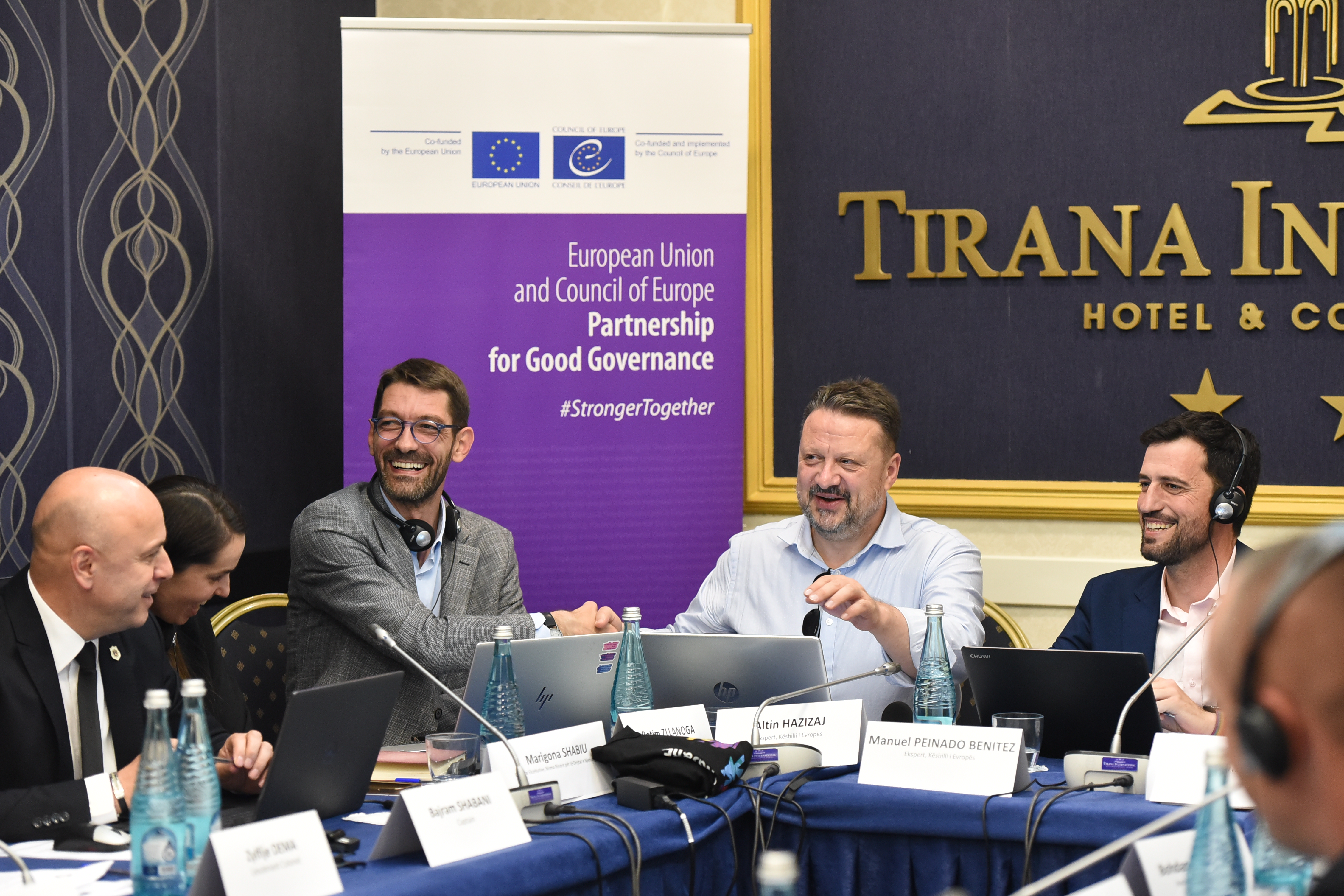The EU and Council of Europe organised a peer exchange between law enforcement and civil society representatives from Albania, Kosovo* and Ukraine to strengthen their cooperation on protection of vulnerable groups.
Organised as part of activities marking the International Day Against Homophobia and Transphobia (IDAHOT), aimed to improve collaboration to address effectively hate crimes, in line with European standards.
The Council of Europe manuals on Police Education on Equality & Non-Discrimination” and Policing Hate Crime against LGBTI persons served as reference for effective identification and investigation by the law enforcement agencies.
Participants shared their co-operation experiences on dealing with hate crimes and on protection and safety measures during pride marches. They highlighted the need for enhanced partnership in ensuring effective protection of the rights of vulnerable groups. The exchange further strengthened cross-regional co-operation on addressing common challenges, as part of the EU and Council of Europe joint efforts to combat racism in the Western Balkans and Eastern Partnership.
-------------------------
This activity was organised within the European Union and Council of Europe joint initiatives:
- “Promoting equality and combating racism and intolerance in the Western Balkans” implemented under the “Horizontal Facility for the Western Balkans and Türkiye” programme;
- “Promoting equality and non-discrimination: towards more resilient and inclusive societies”, implemented in the framework of the “Partnership for Good Governance” programme, and
- "Support for implementing European standards relating to anti-discrimination and rights of national minorities in Ukraine".
*This designation is without prejudice to positions on status, and is in line with UNSCR 1244 and the ICJ Opinion on the Kosovo Declaration of Independence.




